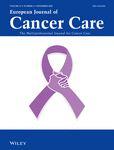The possibility of impossibility: The hope for a cure among terminally ill cancer patients in China
Xin Zhang and Bei Ju have contributed equally to this work.
Funding information: Research on the Construction of an Inclusive Hospice System with Chinese Characteristics, Key Project of the National Social Science Foundation of China, Grant/Award Number: 20AZD070
Abstract
Objective
Although the medical potential of the hope for a cure has been fiercely debated within academia, few researchers have approached this topic from the perspective of terminally ill cancer patients themselves. As such, this article aims to help bridge the gap by exploring how terminally ill cancer patients in China construct the hope for a cure.
Methods
Seventeen terminally ill cancer patients were recruited from the department of oncology at a tertiary hospital, where data were collected through individual interviews and participatory observation from April to December 2020 and analysed via thematic analysis.
Results
The respondents experienced a dynamic swing between construction and denial of the hope for a cure. Furthermore, the patients negotiated between three forms of hope, including the hope for a cure, the hope for prolonged life expectancy and the hope of living in the moment. Meanwhile, family-oriented hope was centred on intergenerational relationships, which further shaped the construction of the hope for a cure.
Conclusion
Medical staff needs to be sensitive to terminally ill cancer patients' dynamic swing, negotiation and motivation during the process of constructing the hope for a cure.
CONFLICT OF INTEREST
The authors declared no potential conflict of interest with respect to the research, authorship and/or publication of this article.
Open Research
DATA AVAILABILITY STATEMENT
The data that support the findings of this study are available on request from the corresponding author. The data are not publicly available due to privacy or ethical restrictions.




